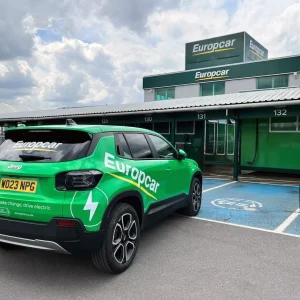All the signs are that belts are being tightened, but far from trying to cut your costs, this could actually be the perfect time to spend some cash and renew your fleet, writes Rupert Saunders
After a first half of the year when new car sales have held up remarkably well, the auto retail industry is starting to feel the pain.
The first signs came at the end of May – new registrations down by 3.5% and, more importantly for the retailers, sales to private customers down 9.5%. Nobody is expecting the figures for June’s sales to be any better.
Top dealer group boss Trevor Finn, who runs Stratstone and Evans Halshaw, was being cautious when he told me: “The market is experiencing a decline in activity levels for both new and used cars.
“It is unclear whether this will persist for the remainder of the year, but our current view is that it will, and that there will be a continuing exposure to any further slowdown in the general economy.”
What effect is this likely to have on the business car industry, over and above the general effects of a slowing economy? In the short term, it will mean that cars will get cheaper.
Car manufacturers are still overproducing; dealers are still under pressure to meet volume targets. And, history tells us that, despite all the rhetoric about not ‘distressing residual values’, under these circumstances they turn to the business car market to absorb the excess capacity. That will mean extra incentives to buy now, especially towards daily rental or leasing companies.
This is good news if you are about to renew your fleet; it might even be good news if renewal is coming up in the next few months.
When finances get tight, there is always a temptation to hunker down and extend the replacement cycle (I hear anecdotal evidence that this is already happening). But it is hard to see what’s achieved by this; your cars just go on getting older and residual values continue to fall. In essence, you are simply prolonging the agony.
A further temptation is to reduce the cost of acquisition by cutting back on specification or badge, but this is dangerous territory. A recent survey by Masterlease revealed the prospect of a head-turning company car can be a big enough incentive for a third of employees to jump ship and move on.
“The research shows that it is traditional company car schemes, not cash, that have the pulling power,” says Robert Kingdom, head of marketing and business development. “A top-spec company car can be the ultimate incentive for a skilled worker and is an important form of recognition in the workplace.”
In the second half of this year, the manufacturer incentives are only going to get bigger and the chances to reduce cost stronger. Your role, as a professional business car manager, will be to assess each deal on its merits.
But don’t turn a blind eye to the opportunities that will come along, just because there’s a budget squeeze. While car manufacturers and dealers may be feeling the pain, that could be your gain.





